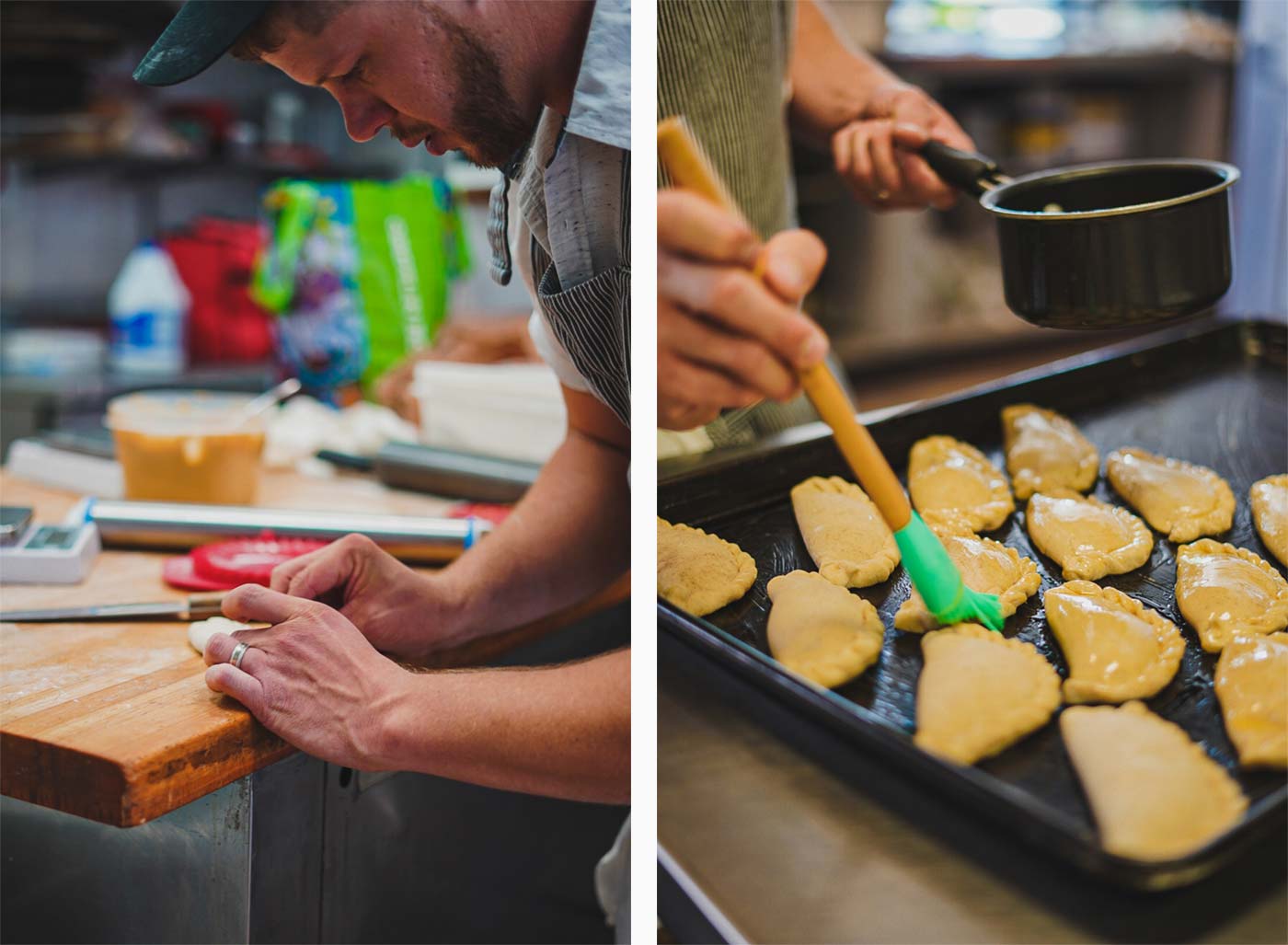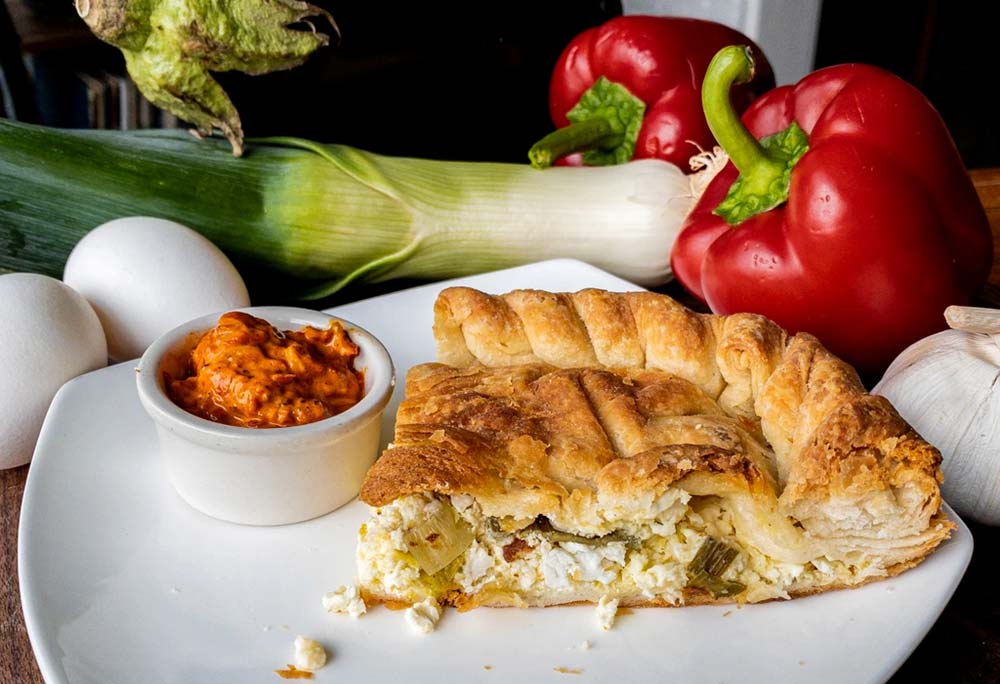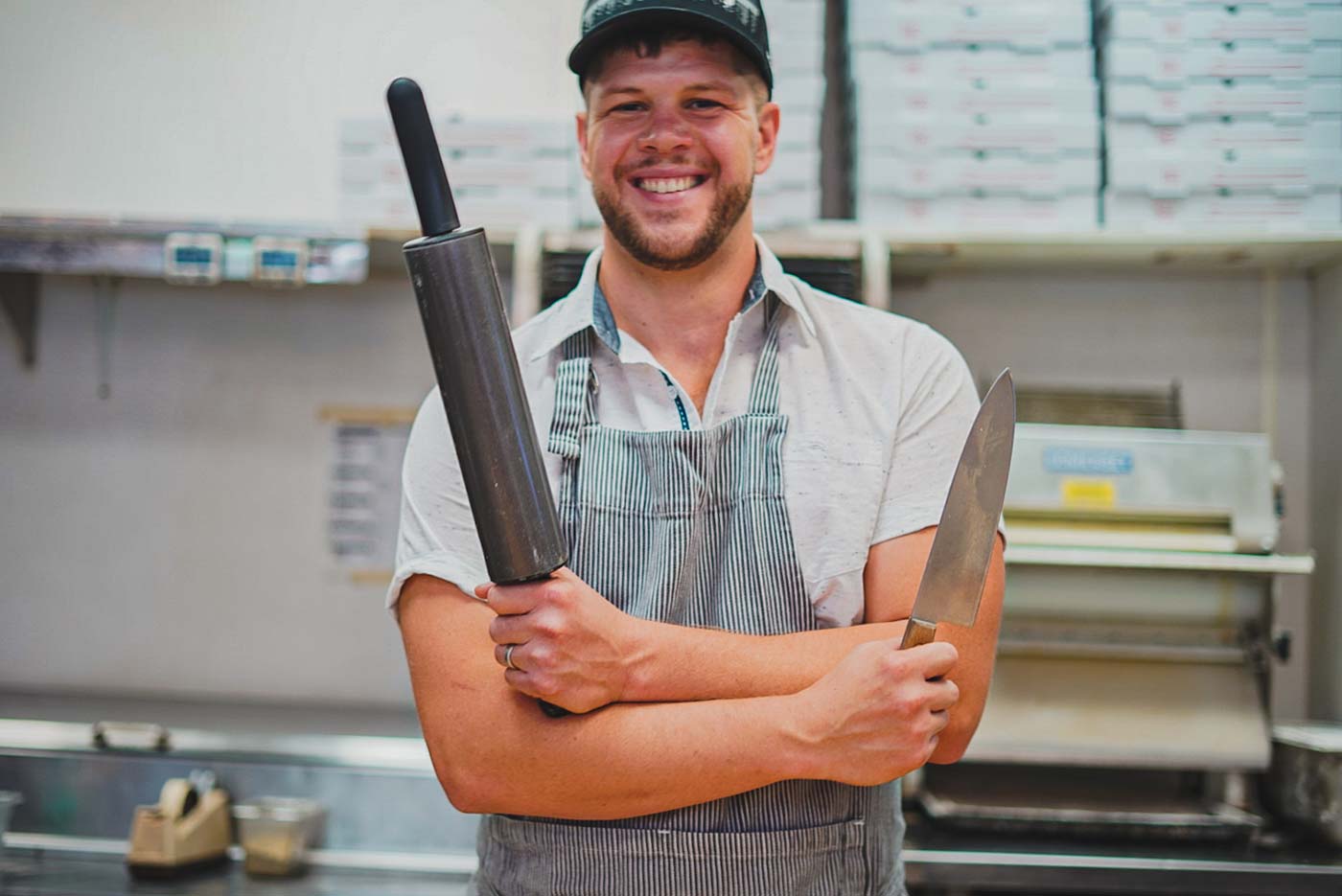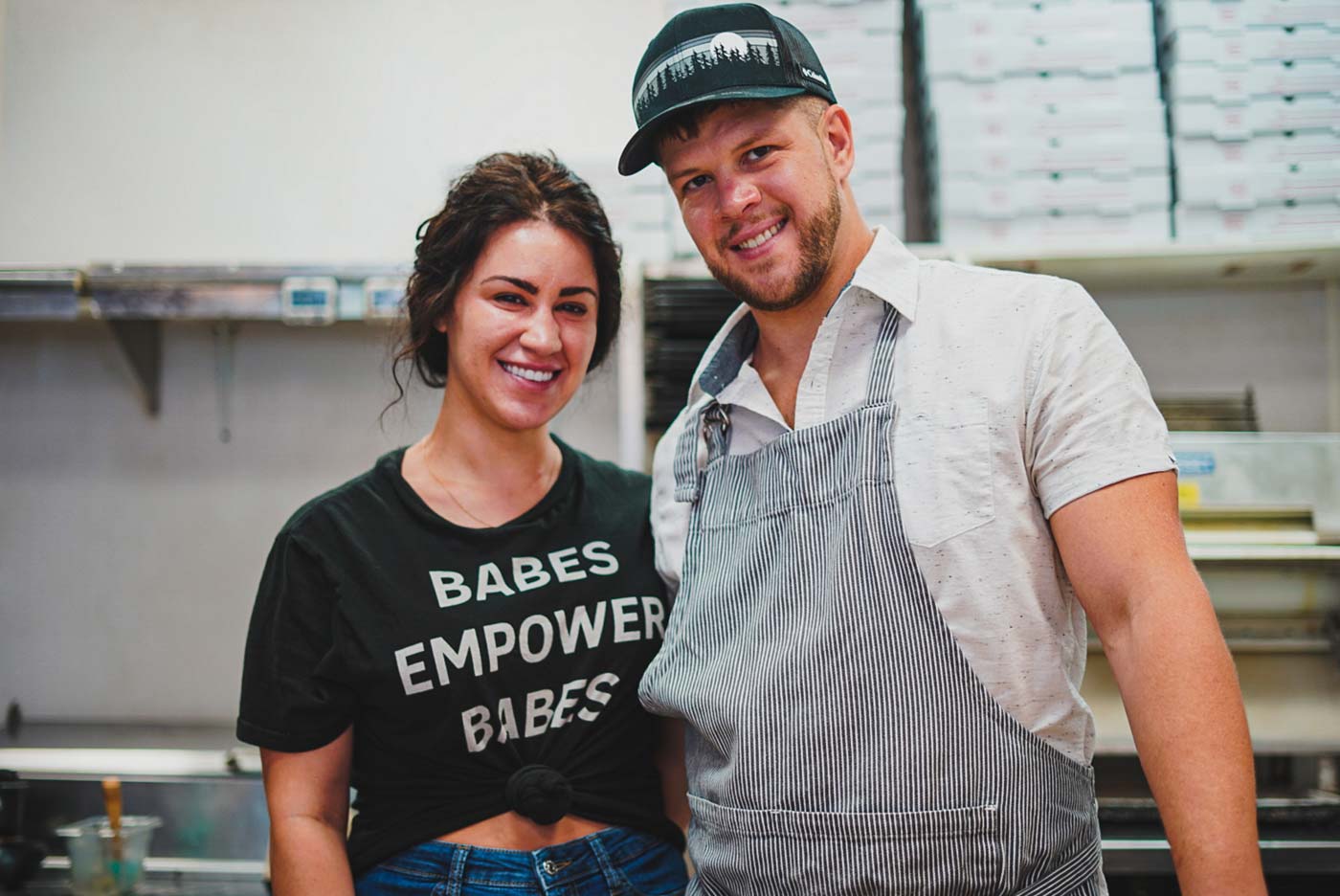Preserving Macedonian Culture, One Zelnik at a Time
He is a quiet dreamer, a creator of various forms, an engineer by trade—and his name is Ryan Miller.
Stepping into the world of food through the sweet innocence of a foodie Instagram account, Ryan felt inspired to take on a new endeavor and be the captain of his own ship. It all began on a honeymoon trip to a village known historically as Patele in northern Greece, where he was re-introduced to the Macedonian culture of his grandfather. Through the stories told by his cousins and the feasts shared by his extended family, Ryan became enthralled by the family history and the traditions of his ancestors. Since that day, he has committed to being a vessel for the preservation of the Macedonian culture.
To Ryan, food serves as a method to share history and tradition. Food tells the tale of a village dating to ancient times when Macedonia was an empire ruled by kings. Food tells the tale of babas (grandmothers) working tirelessly to serve a massive feast made from scratch to their children and grandchildren as they all gather under one roof in celebration of family. Food is the active preservation of stories, and it brings us all together.
The creation of his business, Zelnik, stemmed from a desire to artfully balance the breaking and safeguarding of tradition. To Ryan and to his family, the flaky, layered Macedonian zelnik is a savory pastry dish that reminds of home and family. But also, it is a dish that breaks barriers and is the cumulation of flavors taken from different regions across the globe. He describes his business as “nontraditional Macedonian.” Being “nontraditional” means to think outside the box, be inspired by different cuisines, and take a chance on creative innovation. Ryan sought to earn the nontraditional moniker of his small business, and that he did.

(left) All of Ryan’s products are made by hand. (right) Hand pies were a special addition for the fall season.
Ryan credits his knowledge of zelnik creation to his father, who was devoted to annotating the “nonexistent” recipes of Baba into the written text to be shared, loved and passed on to the next generation. To those unfamiliar with zelnik, it is the epitome of “slow food.” “Everything takes a long time to prepare from scratch, but you feel the love put into the labor and it’s rich with flavor,” Ryan says. It’s a warm hug from Baba in the form of eight layers of dough with even more layers of butter. The version that Zelnik sells as “Baba’s Original” has a filling of eggs, cottage cheese, feta cheese and leeks. There also is a Spiced Beef version with ground beef, feta cheese and fire-roasted tomatoes.
For those who are new to this dish, Zelnik offers a simple ordering process on its website and provides delivery options as well. But it stands out by being unique in its presentation. “It’s best right out of the oven when it’s perfectly flaky. Even delivering it hot wouldn’t be the same,” he says. The first bite of zelnik is meant to embody the quality of take-and-bake gourmet food and the culture of Macedonia. And for Ryan, that remains to this day.
When asked about how he is doing after another year of the pandemic, he answers with an honest calm in his voice. “Definitely people were more enthusiastic about Zelnik at the start, I think. As soon as people were able to go out more, the orders kind of dropped off, too. because people weren’t eating at home or weren’t ordering in as much. Social media has been a way for us to connect and build relationships with the community.” Then their social media accounts got hacked, which required rebuilding everything. “But we’re so thankful for everything this past year has brought us,” he says.

The first zelnik was Baba’s Original. (Photo courtesy of Zelnik)

Ryan with the tools of his trade
Despite the setbacks, Ryan is still fully committed to Zelnik and all it has to offer to the Columbus community. “The truth is, I’m incredibly stubborn and I believe this concept can work in some capacity. The thought of not seeing it through scares me more than all of the energy it will require to get to the next level. It feels good to share [my culture] with people and see the joy it brings to them: Nourishing people, it feels good.”
When taking that first bite of a zelnik, Ryan says, “it’s not something entirely different. So many different cultures have dishes that are wrapped up in dough. But I hope that the flavor combinations and textures are maybe something a little different from what they have ever had before and it’s pleasurable for them. The highlight of the whole dish is the dough: it really gives that flaky and crispy texture. I hope it’s a fun experience for people. It’s take-and-bake, but with a different approach. I want them to taste the quality and say, ‘Yeah, I’d eat that again.’”
- To learn more or to order zelnik online, visit nontraditionalmacedonian.com.





